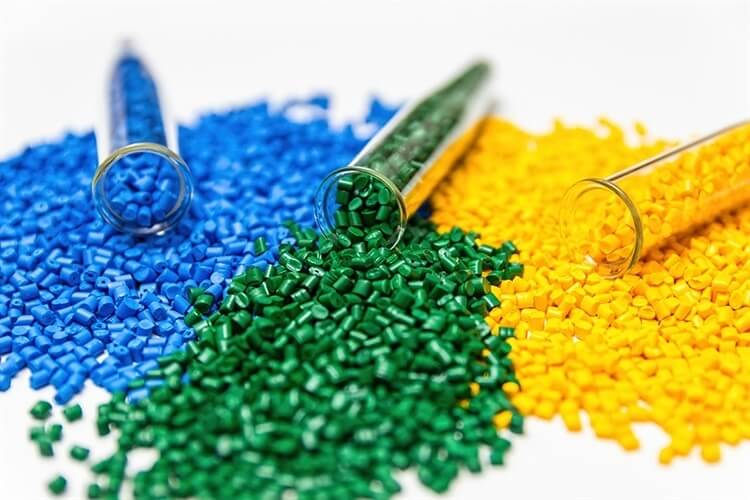High-Performance Polymers: Advanced Products for Sector
Using the Power of Polymers: Recognizing the Comprehensive Uses and Favorable Effects
Polymers, with their diverse chemical structures and properties, have come to be important in countless industries, reinventing the means we interact with materials on an everyday basis. As we discover the considerable uses of polymers and their role in shaping a much more sustainable, effective, and cutting-edge future, it comes to be evident that their potential is as huge as the particles themselves.
Convenience in Everyday Products
Polymers exhibit remarkable flexibility in a large variety of day-to-day products, demonstrating their important function in modern-day culture. From the adaptable plastic covering of smart devices to the sturdy fibers in clothing, polymers have actually changed the means we connect with items in our every day lives. One of the most common uses polymers remains in product packaging products. Polyethylene, as an example, is commonly used in food packaging because of its lightweight, durable, and moisture-resistant residential or commercial properties. Furthermore, polymers play a vital function in the vehicle industry, where they are used in manufacturing light-weight elements that enhance fuel performance.
In addition, polymers have actually found their means right into the health care sector, with applications varying from medical tools to medication shipment systems. Eco-friendly polymers are used in sutures and implants, decreasing the threat of negative reactions in clients. In the construction sector, polymers are incorporated right into paints, adhesives, and insulation materials, improving sturdiness and power effectiveness. On the whole, the convenience of polymers in daily items underscores their relevance in driving technology and enhancing lifestyle.
Sustainability in Material Innovations
With the recurring focus on environmental consciousness and resource performance, the emphasis shifts towards sustainability in material advancements, showing an expanding dedication to responsible manufacturing methods throughout numerous sectors. Over the last few years, there has been a significant rise in the growth of lasting products, specifically within the world of polymers. These innovative materials are designed to reduce environmental effect throughout their entire lifecycle-- from sourcing basic materials to disposal or recycling.
One considerable element of sustainability in material developments is the idea of biodegradability. Biodegradable polymers have garnered attention for their ability to damage down normally right into safe by-products, minimizing waste and contamination. Furthermore, the use of recycled polymers obtained from post-consumer or post-industrial sources is obtaining traction as a way of promoting a circular economy and reducing dependency on virgin products.

Enhancing Efficiency in Design
Enhancing efficiency in design requires a precise integration try this site of advanced modern technologies and specific methods to enhance performance and efficiency in numerous commercial applications. Polymers play a vital function in this endeavor, offering a vast array of advantages that improve the performance of design materials and components.
One key facet of improving performance in design is the capability of polymers to improve longevity and toughness. By integrating polymers right into design styles, manufacturers can develop lightweight yet durable structures that can withstand high degrees of tension and pressure. This characteristic is particularly useful in industries such as aerospace, auto, and building, where the need for solid yet lightweight products is paramount.
In addition, polymers can also boost performance by supplying thermal and chemical resistance, reducing rubbing, and improving electrical conductivity. These residential or commercial properties make polymers excellent for a variety of engineering applications, including seals, bearings, layers, and electronic elements. Polymers. By harnessing the special properties of polymers, engineers can maximize the efficiency of their designs and produce extra efficient and reputable items
Impact on Clinical Advancements
Polymers have actually played a critical duty in modern-day clinical improvements, varying from medication delivery systems to cells design. One of the crucial areas where polymers have made a substantial influence is in the growth of eco-friendly stitches and implants.
Furthermore, polymer-based materials are increasingly being made use of in clinical gadgets such as catheters, stents, and prosthetics due to their biocompatibility and versatility. For example, polymer coatings on clinical gadgets can avoid infections and enhance total individual results. Furthermore, advancements in nanomedicine have allowed making use of polymer nanoparticles for targeted medicine delivery, boosting the effectiveness and reducing side results of various medications
Function in Environmental Preservation

In addition, polymers are made use of in water treatment processes, helping in the purification and recycling of water resources. This aids in decreasing water contamination and guaranteeing accessibility to tidy water for both human intake and ecological health. Polymers likewise play a function in agriculture with the growth of naturally degradable composts and controlled-release fertilizers, advertising lasting farming techniques.
Conclusion
In conclusion, polymers have shown to be a functional and vital product in various sectors, from daily products to engineering and medical improvements. Understanding the considerable usages of polymers emphasizes their significance in driving innovation and progression in several fields.